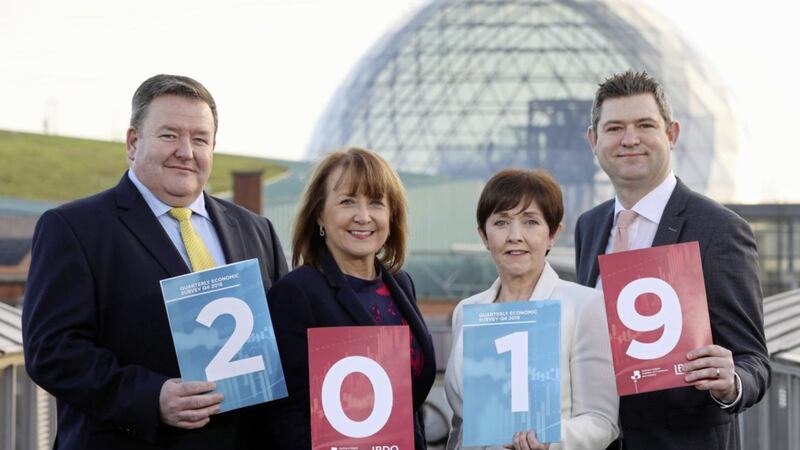BUSINESSES in Northern Ireland are "embarrassed" at the lack of a Stormont administration and claim the region is facing "total humiliation" on the global political stage.
They also claim the previous Executive's stated aim of having the economy as its number one priority "has clearly now died".
And they believe the two-year absence of an Executive is more concerning even than Brexit, with 79 per cent believing it will damage Northern Ireland’s economic prospects in 2019 and 52 per cent of respondents feeling no Stormont is negatively impacting their own businesses.
They were responding to the latest NI Chamber/BDO quarterly economic survey, which garnered the views of 260 businesses employing 19,000 people.
"Firms are showing particular frustration around the damage caused to regional investment and local decision-making as well as the fact that Northern Ireland has no political voice in the UK/EU negotiations," NI Chamber chief executive Ann McGregor said.
The survey, which covers the last three months of 2018, also found that weak order books along with falling investment intentions made for a muted end to the year for local businesses.
But there are still signs of growth in the Northern Ireland economy overall - with almost all key balances positive meaning more businesses in manufacturing and services are reporting increases in indicators such as sales and jobs than those reporting a fall.
Some 23 per cent of businesses believe that there will be some growth in the regional economy in 2019, though 53 per cent believe it will contract (a much more pessimistic prognosis than previous surveys)..
But Chamber members are more positive about their own business prospects, with 60 per cent expecting some growth.
Other key issues raised in the survey included challenges around recruitment, with 75 per cent of those trying to hire say they are finding it difficult to attract the right staff, largely skilled trades in manufacturing and professional/managerial in services.
The survey also threw up some positive findings, with businesses in both the manufacturing and services sectors among the highest ranked regions who are operating at full capacity.
Ms McGregor said: “Whilst the economy is not contracting, it is clearly not growing robustly either.
"Throughout much of 2018, businesses were subjected to a barrage of political noise and drama, so it’s no surprise that Brexit, along with a lack of an Executive, are having an increasingly negative impact on business growth and investment plans.
“With little clarity on the trading conditions they’ll face in just two months’ time, some companies are understandably holding back on investment plans and making big decisions about their futures.
"The government’s absolute priority now must be to provide clarity on conditions in the near term and avoid a messy and disorderly Brexit – and action must also be taken to get the NI Executive up and running again.”
Ms McGregor added: “Given the magnitude of the recruitment difficulties faced by firms, business concerns about the government’s recent blueprint for future immigration rules must be taken seriously – and companies must be able to access skills at all levels without heavy costs or bureaucracy.”








